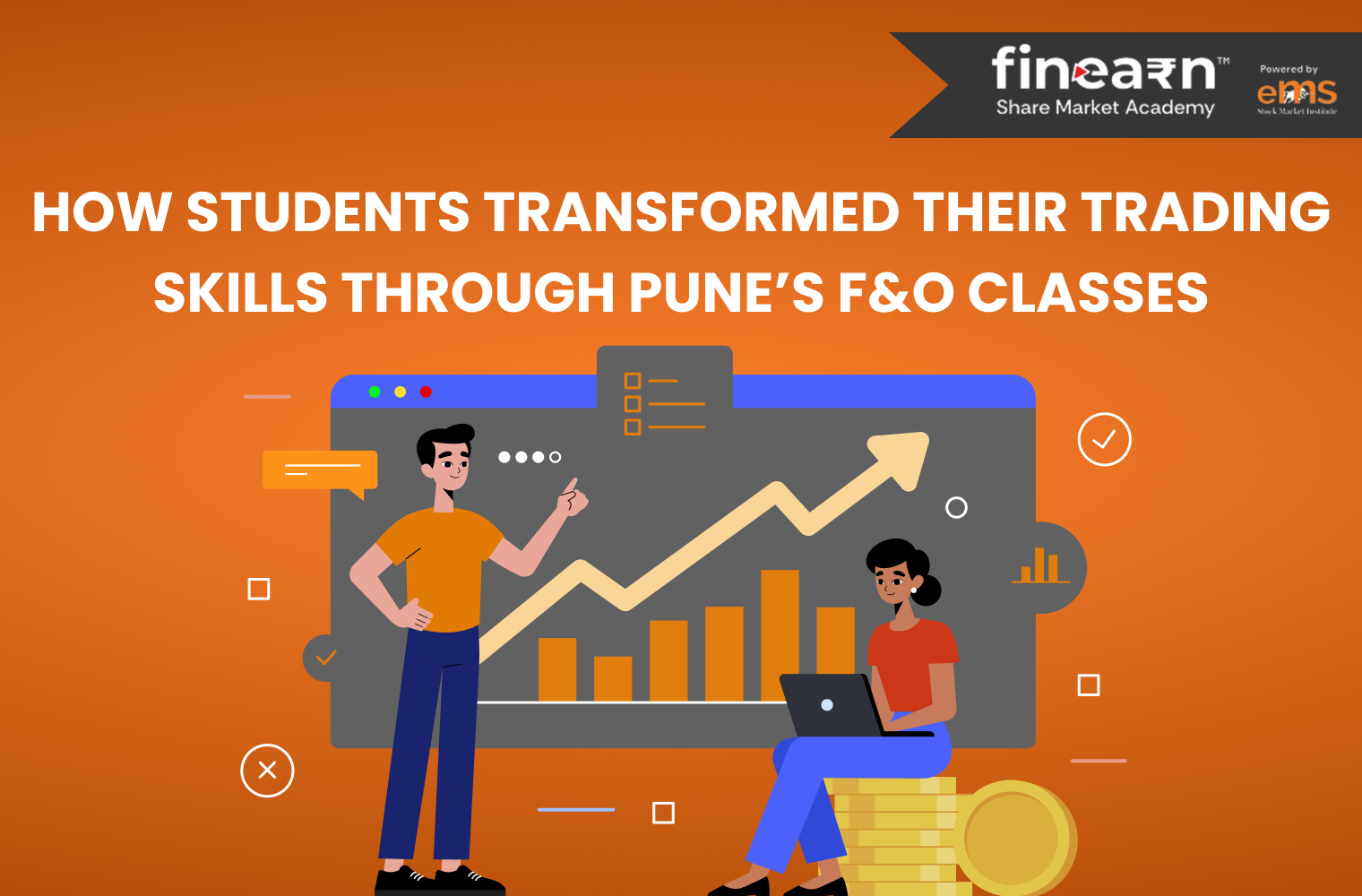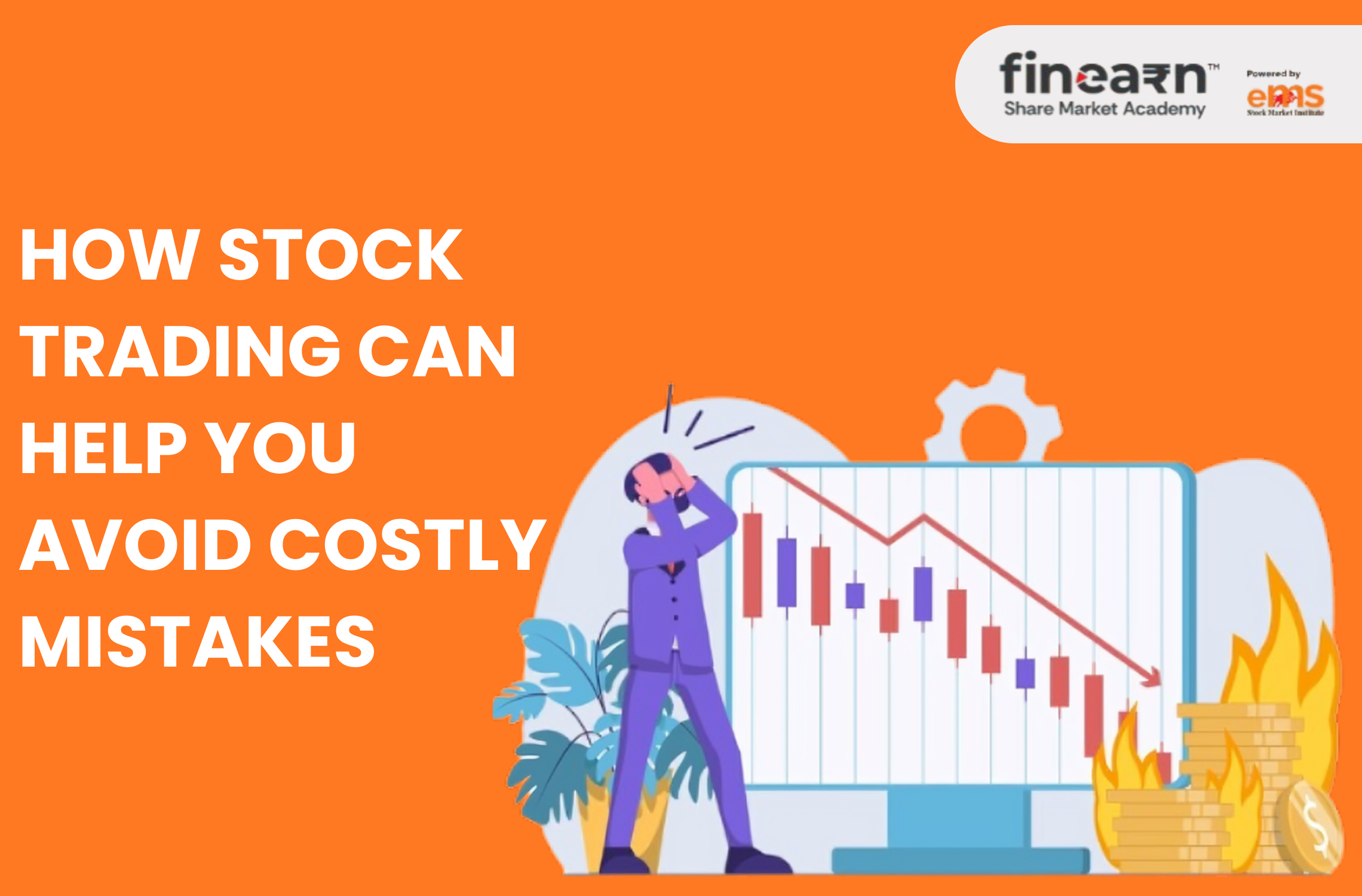Rohan, 27, is an aspiring Futures and Options (F&O) trader. As a new-age learner, he constantly refers to YouTube videos and social media tips. However, every time he ends up being riddled by the dizzying charts and the confusing chaos of technical terms. On the other hand, his moves still seem more like gambles than thoughtful strategies.
Amidst these struggles, someone recommends pursuing Futures and Options trading classes in Pune. Now, Rohan wonders whether these classes will benefit him. Accordingly, he tries to discover how enrolling in the best share trading classes in Pune can help him.
8 Ways Future and Option Trading Classes in Pune Transform Trading Skills
From going beyond the jargon and strengthening the basics to developing trading discipline, here’s how F&O trading classes in Pune enhance your trading capabilities.
1. Comprehending the Basics
F&O has its unique language and terms like premium, lot size, strike price, put-call parity, implied volatility, time decay, etc. Without formal education and practice, these terms may seem intimidating. However, a thoughtfully designed, comprehensive F&O course breaks down these intricacies into simple, digestible information.
Think of it as learning the grammar of a new language before you use it. These classes offer a fundamental understanding of each term and its impact on your trading strategies and decisions. Thus, you eliminate guesswork and make more informed decisions.
2. Teaching Risk Management
Risk is as integral to F&O as it is to other trading techniques. While you cannot eliminate risk, you can manage and control it. This is where risk management steps in. Managing risks is crucial as even a few bad trades can ruin your painstakingly built portfolio!
F&O courses train you on how to calculate and limit risk exposure. While pursuing them, you use tools like stop-loss orders to safeguard your capital. Additionally, you can diversify your strategies. The course deepens your understanding of risk management, enabling you to apply its principles in real-life trading and stay secure as much as possible.
3. Developing a Trading Strategy
Successful trading doesn’t happen by fluke. It is the outcome of disciplined strategy and informed decision-making. F&O classes help you develop a trading strategy based on analysis, insights, and not impulses. The training sessions involve learning different strategies for diverse market conditions. For instance, you use straddles in volatile markets or covered calls to generate income. Accordingly, you move from being instinct- or guess-driven to a more structured and rule-based approach.
4. Learning Proven Strategies
Often, F&O beginners follow ‘hot tips’ or ‘tips no one will tell you’, etc., given by experts. Such easy information usually makes novices discount formal training! However, these tips may not always work. Besides, surviving on such information refers to a fleeting approach. You cannot continue with it for long. But F&O classes cover proven and structured strategies like spreads, straddles, and hedging. They let you practice these, develop a certain level of expertise, and then venture out to implement them.
Thousands students transformed their trading skills with us. Join FinEarn’s F&O Classes
5. Practicing Through Simulations
Theory strengthens your understanding. But practice helps you achieve the perfection it takes to become successful. Accordingly, the best share trading classes in Pune conduct mock trading sessions. These sessions help you practice strategies without risking real money. They help you step and trade confidently in the market.
6. Learning How to Use Leverage
Leverage is an integral aspect of F&O trading. It is a technique that allows you to control a much more significant position than the capital you have deposited. F&O contracts allow you to do that. While enhancing gains, it can worsen losses! F&O classes help you learn the judicious use of leverage. While explaining the pros and cons, the courses also teach you how to avoid the common pitfalls while using leverage.
7. Developing Discipline
Technical knowledge and practice help you trade profitably. However, the one basic aspect that helps you succeed is discipline. The share market is nothing less than an emotional roller coaster. Thus, at times, you may face situations that can carry you away. Attributes like discipline and emotional control help you stay anchored to your objectives.
In situations like these, many traders make abrupt choices or decisions. But F&O classes develop the discipline that allows you to rationally analyze the situation, structure your strategy, and make informed decisions.
8. Finearn F&O
Finearn F&O share market classes provide students live mentoring in real life market conditions. Unlimited practicals and hand holding is the key to groom students in becoming professional traders.
Become a Confident F&O Trader with Fin Earn Share Market Academy!
A trusted name in share market academy, FinEarn Share Market Academy offers comprehensive F&O and intraday trading classes in Pune. Our meticulously designed courses and experienced trainers cover every essential aspect of F&O trading, helping you transform your skills. Thousands have already achieved success. Many thousands are already on their way. So, don’t fall for short-term tips or strategies. Do what it takes to become a successful trader. Join Fin Earn’s trading classes in Pune. Call us at +91 95618 61818 for more.

 +91 95618 61818
+91 95618 61818







